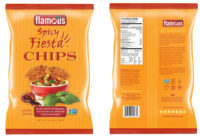FDA Launches Education Initiative on Genetically Engineered Foods
Feed Your Mind is a new outreach program that aims to increase consumer awareness and understanding of genetically engineered foods

GMO is a common term used by consumers to describe foods that have been created through genetic engineering. While GMOs have been available to consumers since the early 1990s and are a common part of today's food supply, research shows consumers have limited knowledge and understanding about what GMOs are, why they are used, and how they are made.
WATCH A VIDEO ABOUT THE INITIATIVE
The US Food and Drug Administration (FDA), with the US Department of Agriculture (USDA) and US Environmental Protection Agency (EPA), launched Feed Your Mind, a new Agricultural Biotechnology Education and Outreach Initiative. The Initiative aims to increase consumer awareness and understanding of genetically engineered foods or GMOs.
What are GMOs?
"GMO" is a common term used to describe a plant, animal, or microorganism that has had its DNA changed through a process scientists call genetic engineering. Most of the GMO crops grown today were developed to help farmers prevent crop loss. There are ten GMO crops currently grown and sold in the US: alfalfa, apples, corn, cotton, papayas, potatoes, soybeans, summer squash, and sugar beets.
Are GMOs safe to eat?
Many federal agencies play an important role in ensuring the safety of GMOs. FDA, USDA, and EPA work together to ensure that crops produced through genetic engineering are safe for people, animals, and the environment. Collaboration and coordination among these agencies help make sure food developers understand the importance of a safe food supply and the rules they need to follow when creating new plants through genetic engineering.
Look for "Bioengineered food" on food labels
Soon, you may see the term "bioengineered food" on certain food packaging. Congress used "bioengineered food" to describe certain types of GMOs when it passed the National Bioengineered Food Disclosure Standard. The Standard establishes requirements for labeling foods people eat that are bioengineered or may have bioengineered ingredients. It also defines bioengineered foods as those that contain detectable genetic material that has been modified through certain lab techniques and cannot be created through conventional breeding or found in nature.
Learn more about the Feed Your Mind Initiative.
Looking for a reprint of this article?
From high-res PDFs to custom plaques, order your copy today!





